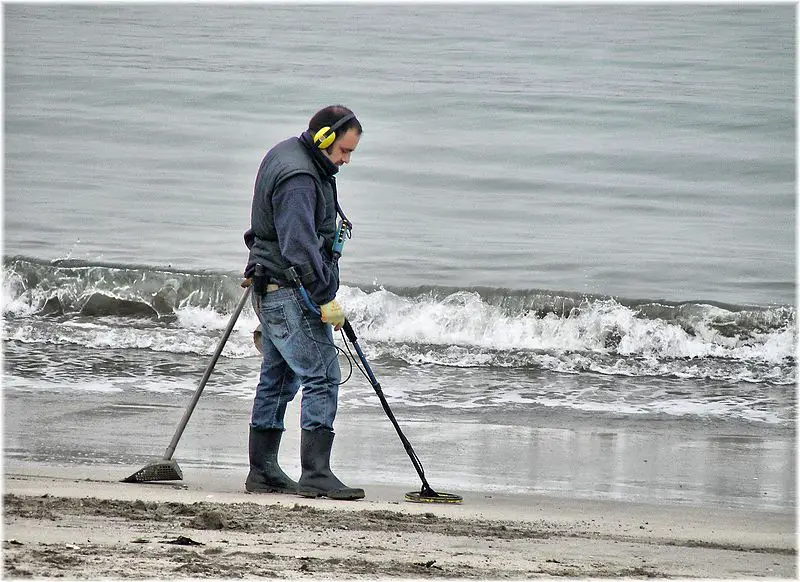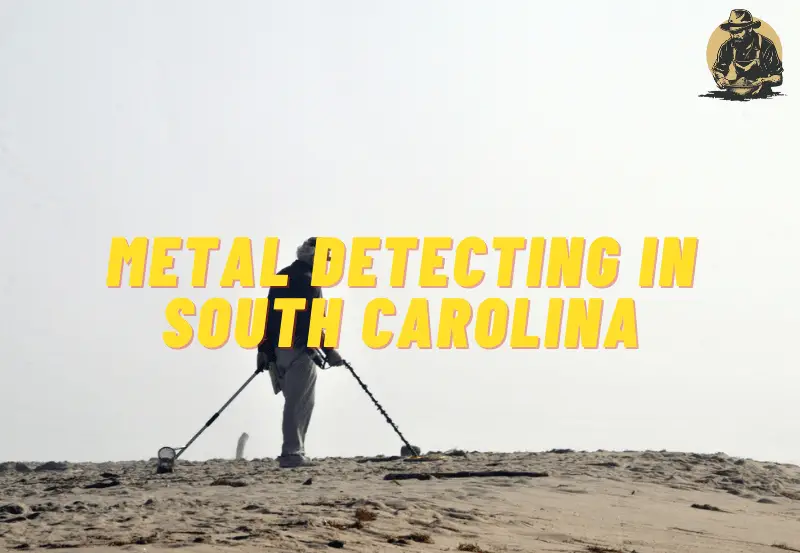Table of Contents
ToggleMetal Detecting Laws by State
Federal Regulations Impacting Metal Detecting Laws By State
Several federal laws and regulations impact metal detecting on public lands in the United States. The American Antiquities Act of 1906 allows the president to designate federal lands as protected sites, requiring a permit for the excavation and removal of artifacts. The National Historic Preservation Act of 1966 further protects historical and archaeological sites, creating the National Register of Historic Places. The Archaeological Resources Protection Act of 1979 governs excavation on federal and Native American lands, controlling the removal of archaeological artifacts.
In national parks, metal detecting is generally prohibited under 36 CFR 2.1(a)(7), except when authorized by a permit issued by the National Park Service. National forests have more lenient rules, with metal detecting usually allowed for recreational purposes under 36 CFR 261.9, as long as it does not disturb natural or cultural resources. However, metal detecting for archaeological or historical artifacts still requires a special use permit in national forests.
State-Specific Permit Requirements
Many states require permits for metal detecting on state-owned lands like parks, beaches, and forests. Permit requirements and fees vary widely between states. For example, some state park systems maintain pre-approved lists of sites that allow metal detecting without a permit, while other areas require applying for a permit through the local park office.
Certain states have more stringent regulations, such as only allowing detecting in specific zones like parking lots and picnic areas, restricting digging implements to hand tools, or prohibiting the removal of any found objects without approval. Some coastal states include shipwrecks as protected archaeological sites off-limits to metal detecting.
It’s important for detectorists to research the specific requirements in their state before exploring public lands, as regulations can vary significantly between different jurisdictions and types of properties. Joining a local metal detecting club is a good way to learn about laws and permit needs. Responsible hobbyists should always obtain any necessary permits, follow local rules, and respect the environment while metal detecting.
Protected Archaeological Sites
Many archaeological sites in the United States are protected by federal and state laws that prohibit metal detecting and the removal of artifacts without a permit. The Archaeological Resources Protection Act (ARPA) of 1979 makes it illegal to excavate, remove, damage, or deface any archaeological resource on federal or Native American lands, including pottery, weapons, tools, structures, rock art, graves, and human remains over 100 years old.
ARPA violations can result in fines, jail time, and confiscation of metal detecting equipment. Additional laws like the Native American Graves Protection and Repatriation Act and the Embezzlement and Theft from Indian Tribal Organizations statute provide further protection for Native American cultural items and property.
At the state level, many states have their own antiquities laws that safeguard archaeological sites on state lands. For example, the Antiquities Code of Texas requires a permit from the Texas Historical Commission for any excavation on state lands and prohibits collecting artifacts from protected sites. Archaeological resources are considered non-renewable and hold the most value when left undisturbed in their original context.
Responsible metal detectorists should always check if an area contains any known archaeological sites before detecting and obtain the necessary permits. Reporting any accidental finds to the appropriate authorities helps preserve these irreplaceable pieces of history for future generations.
State-by-State Permit Requirements
Here is a list of metal detecting laws and permit requirements for each U.S. state, with links to relevant websites when available:
- Alabama: Permits required for state parks and historical sites. Check with individual park offices.
- Alaska: Permits required for state parks. Apply through the Alaska Department of Natural Resources.
- Arizona: Permits required for state parks and historical sites. Contact Arizona State Parks.
- Arkansas: Permits required for state parks. Visit the Arkansas State Parks website for applications.
- California: Permits required for most state parks and beaches. Apply through the California Department of Parks and Recreation.
- Colorado: Permits required for state parks and historical sites. Check with Colorado Parks and Wildlife.
- Connecticut: Permits required for state parks and forests. Apply through the Connecticut Department of Energy and Environmental Protection.
- Delaware: Permits required for state parks and beaches. Contact the Delaware Division of Parks and Recreation.
- Florida: Permits required for most state parks and historical sites. Visit the Florida Department of Environmental Protection website.
- Georgia: Permits required for state parks and historic sites. Apply through the Georgia Department of Natural Resources.
- Hawaii: Metal detecting generally prohibited in state parks and beaches without a permit from the Hawaii Division of State Parks.
- Idaho: Permits required for state parks. Contact the Idaho Department of Parks and Recreation.
- Illinois: Permits required for most state parks and historical sites. Check with the Illinois Department of Natural Resources.
- Indiana: Permits required for state parks and reservoirs. Apply through the Indiana Department of Natural Resources.
- Iowa: Permits required for state parks and preserves. Visit the Iowa Department of Natural Resources website.
- Kansas: Permits required for state parks. Contact the Kansas Department of Wildlife, Parks and Tourism.
- Kentucky: Permits required for most state parks and historical sites. Apply through the Kentucky Department of Parks.
- Louisiana: Permits required for state parks and historical sites. Check with the Louisiana Office of State Parks.
- Maine: Permits required for state parks and historic sites. Contact the Maine Bureau of Parks and Lands.
- Maryland: Permits required for most state parks and forests. Visit the Maryland Department of Natural Resources website.
- Massachusetts: Permits required for state parks, forests, and beaches. Apply through the Massachusetts Department of Conservation and Recreation.
- Michigan: Permits required for most state parks and recreation areas. Check with the Michigan Department of Natural Resources.
- Minnesota: Permits required for state parks and forests. Contact the Minnesota Department of Natural Resources.
- Mississippi: Permits required for state parks and historical sites. Apply through the Mississippi Department of Wildlife, Fisheries, and Parks.
- Missouri: Permits required for most state parks and historic sites. Visit the Missouri State Parks website.
- Montana: Permits required for state parks. Contact Montana Fish, Wildlife and Parks.
- Nebraska: Permits required for state parks and recreation areas. Apply through the Nebraska Game and Parks Commission.
- Nevada: Permits required for state parks. Check with the Nevada Division of State Parks.
- New Hampshire: Permits required for state parks and forests. Visit the New Hampshire State Parks website.
- New Jersey: Permits required for most state parks and forests. Contact the New Jersey Division of Parks and Forestry.
- New Mexico: Permits required for state parks and historical sites. Apply through the New Mexico State Parks Division.
- New York: Permits required for most state parks and historic sites. Check with the New York State Office of Parks, Recreation and Historic Preservation.
- North Carolina: Permits required for state parks and recreation areas. Visit the North Carolina State Parks website.
- North Dakota: Permits required for state parks. Contact the North Dakota Parks and Recreation Department.
- Ohio: Permits required for most state parks and historical sites. Apply through the Ohio Department of Natural Resources.
- Oklahoma: Permits required for state parks and recreation areas. Check with the Oklahoma Tourism and Recreation Department.
- Oregon: Permits required for state parks and historical sites. Visit the Oregon Parks and Recreation Department website.
- Pennsylvania: Permits required for most state parks and forests. Contact the Pennsylvania Department of Conservation and Natural Resources.
- Rhode Island: Permits required for state parks and beaches. Apply through the Rhode Island Department of Environmental Management.
- South Carolina: Permits required for state parks and historic sites. Check with the South Carolina Department of Parks, Recreation and Tourism.
- South Dakota: Permits required for state parks and recreation areas. Visit the South Dakota Game, Fish and Parks website.
- Tennessee: Permits required for most state parks and historical sites. Contact the Tennessee Department of Environment and Conservation.
- Texas: Permits required for state parks and historic sites. Apply through the Texas Parks and Wildlife Department.
- Utah: Permits required for state parks and recreation areas. Check with the Utah Division of Parks and Recreation.
- Vermont: Permits required for state parks and forests. Visit the Vermont State Parks website.
- Virginia: Permits required for most state parks and historical sites. Contact the Virginia Department of Conservation and Recreation.
- Washington: Permits required for state parks and recreation areas. Apply through the Washington State Parks and Recreation Commission.
- West Virginia: Permits required for state parks and forests. Check with the West Virginia Division of Natural Resources.
- Wisconsin: Permits required for most state parks and forests. Visit the Wisconsin Department of Natural Resources website.
- Wyoming: Permits required for state parks and historic sites. Contact Wyoming State Parks, Historic Sites and Trails.
It’s important to note that laws and regulations can change over time, so it’s always best to contact the relevant state agencies directly for the most up-to-date information on metal detecting permits and requirements.
Key Takeaways and Conclusion
Here are the key takeaways and conclusions about metal detecting laws and regulations in the United States:
- Varied Regulations: Metal detecting laws vary significantly between states, with each having its own specific rules and permit requirements for state-owned lands like parks, beaches, and forests. It’s crucial for detectorists to research the regulations in their state and obtain any necessary permits before exploring public areas.
- Federal Laws: At the federal level, laws like the Antiquities Act, the National Historic Preservation Act, and the Archaeological Resources Protection Act protect historical and archaeological sites from unauthorized metal detecting and artifact removal. National parks generally prohibit metal detecting under 36 CFR 2.1(a)(7), while national forests allow it for recreational purposes under 36 CFR 261.9, as long as it doesn’t disturb natural or cultural resources.
- State Antiquities Laws: Many states also have their own antiquities laws that safeguard archaeological sites on state lands, with violations resulting in fines, confiscation of equipment, and even jail time in some cases. Responsible metal detectorists should always check for any known protected sites before detecting and report any accidental finds to preserve these irreplaceable historical resources.
- Responsible Detecting: By familiarizing themselves with the relevant laws, obtaining required permits, respecting the environment, and following a code of ethics, hobbyists can enjoy metal detecting while helping to maintain a positive image for the pastime. Joining a local club, consulting with land managers, and staying informed of any regulatory changes are all important steps in being a responsible detectorist.
By adhering to these guidelines, metal detectorists can enjoy their hobby while preserving the historical and cultural heritage of the areas they explore
See also:
Discovering Hidden Treasures in 2024: A Guide to Metal Detecting Clubs Across America
Share via:










